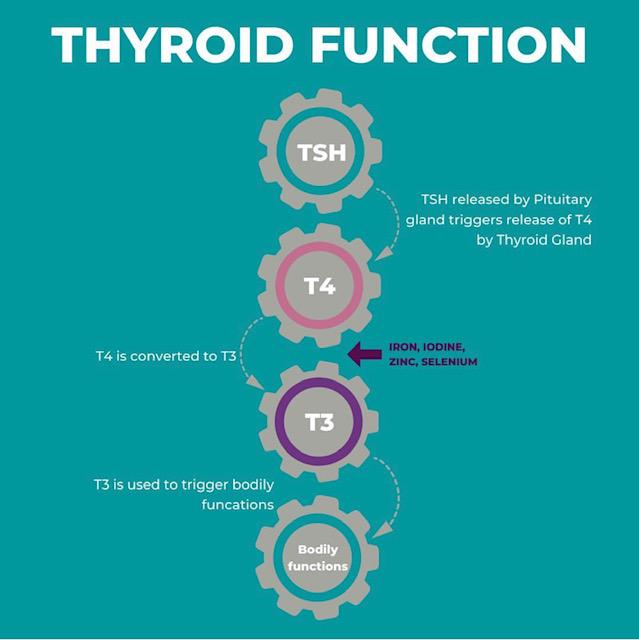Have you been told that your thyroid function is “normal,” yet you still struggle with symptoms like fatigue, brain fog, and weight gain? Many people don’t realize that having low levels of T3—the active form of thyroid hormone—might be contributing to ongoing hypothyroid symptoms, even when standard blood tests appear fine.
Common Symptoms of Low T3 Include:
- Fatigue
- Brain fog
- Weight gain
- Cold hands and feet
- Hair loss
- Dry skin
- Constipation
- Elevated cholesterol
- Menstrual irregularities
Yet, Free T3 is rarely checked in typical thyroid panels ordered by physicians. So, why is T3 so important?

Why T3 Matters for Thyroid Health
T3 (triiodothyronine) is the active thyroid hormone responsible for regulating essential functions, including brain health, heart function, digestion, energy, metabolism, muscle control, and bone health. Unlike T4 (thyroxine), the inactive thyroid hormone, T3 is immediately usable by the body to maintain these functions.
The thyroid gland produces T4, which then needs to be converted into T3 for your body to use. This conversion mainly takes place in the liver and gut, so optimal health in these areas is crucial for proper T3 levels. If the liver is “congested” or digestion is impaired, T4 may not effectively convert to T3.
Factors that may inhibit T3 production and conversion include:
- Liver congestion and chronic exposure to toxins
- Damage to the intestinal lining and microbiome
- Chronic stress and high cortisol levels
- Deficiencies in essential nutrients like Vitamin D, zinc, and selenium
Are You Experiencing Hypothyroid Symptoms?
If you’re still dealing with symptoms of hypothyroidism, consider getting your T3 levels checked to see if they could be the missing piece in your thyroid health.









